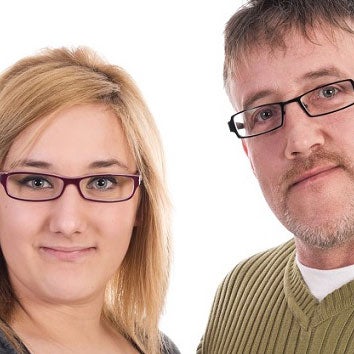
CONNECT WITH A PARENT SPECIALIST FROM THE PARTNERSHIP TO END ADDICTION
Confidential One-On-One Support for Your Family
All communications are free and confidential.
The Helpline has trained and caring master's-level specialists ready to help any parent struggling with a child's drug or alcohol use. They are here to listen, help you find answers and make an action plan. Call, connect via live chat or email to get help.
How You Can Reach Us

Call 1-855-378-4373
Call Now or Make an Appointment with a Parent Specialist
from the Partnership to End Addiction
M-F: 9am- Midnight ET
Weekends: 12pm-5pm ET
Parent Specialists will listen to your story – the challenges, setbacks, obstacles and myriad emotions that often go along with a child's substance use.
Given that there is no one-size-fits-all approach and each family is unique, they'll propose a personalized course of action, offering the best tools and resources to help you help your child, yourself and your family.
In case specialists are busy helping another family, please use any of the following options to reach out or schedule an appointment for a later time.

Text 55753
Text a Parent Specialist from the Partnership to End Addiction
Receive a response within 24-48 hours
To allow Helpline specialists to provide the best help possible,
please include as many details as possible in your message, such as:
- Your son or daughter's age
- The primary drug you're concerned about
- Whether or not your child has been to or sought treatment
- Any questions you may have

Send an email
Email a Parent Specialist from the Partnership to End Addiction
Receive a response within 24-48 hours
To allow Helpline specialists to provide the best help possible,
please include as many details as possible in your message, such as:
- Your son or daughter's age
- The primary drug you're concerned about
- Whether or not your child has been to or sought treatment
- Any questions you may have
If you've searched online for help or treatment for your loved one, you've likely encountered what are advertised as free treatment referral services. These services are frequently affiliated with private, for-profit treatment providers. Those providers may indeed offer reputable treatment, but it's important to be well informed before engaging with a service that could be putting someone else's bottom line above the best interests of your family. We are a nonprofit, and our services are made available for the sole purpose of helping you find the best solutions for your child and your family.
The Helpline is not a crisis hotline.
If you are in need of immediate or emergency services, please call 911 or a 24-hour crisis hotline such as the National Suicide Prevention Lifeline 1-800-273-TALK (8255) or the National Domestic Violence hotline 1-800-799-SAFE (7233).
Families Can Heal
A Massachusetts father shares his experience of facing his son’s prescription drug abuse and explains that while families can be torn apart by addiction, families can also heal.
"You were a safety net when I felt like I was drowning. You had resources to suggest and knew just what to say. Thank you for being there." – Helpline Caller
Support and Guidance for Parents of Drug Addicted Children
Get the ongoing support and information you need to address your son or daughter's substance use. Click on the titles below for quick links to additional resources from the Partnership to End Addiction.
- Know the Warning Signs of drug use
- Figuring out if your child is using drugs or alcohol can be challenging. If you’ve noticed any of the described changes or behaviors in your child, don’t be afraid to err on the side of caution.
- If You Suspect Substance Use, Begin Taking Action
- Before you intervene, take time to prepare yourself for the important conversation ahead, and to lay the foundation for more positive outcomes.
- Is it "Just Experimenting"?
- We do everything we can to keep our kids safe. When it comes to teen drug use, why do so many parents shrug it off as "a rite of passage?"
- Taking Action Starts with Talking. Start the Conversation with Your Son or Daughter
- Discovering that your son or daughter could be using drugs stirs up a lot of emotion. The best way to find out what’s going on, and to begin helping, is to start talking.
- If You Suspect Substance Use, Take Action
- Before you intervene, take time to prepare yourself for the important conversation ahead, and to lay the foundation for more positive outcomes.
- Using Positive Reinforcement to Change Behaviors
- As a parent or caregiver you can use positive reinforcement to encourage the healthy, pro-social behaviors you want to see more of in your child.
- How to Suggest Treatment to a Loved One
- Our loved ones may already be expressing a willingness to get help. Learn what to listen for and how to respond productively.
- Skills to Help Your Child and Family Heal
- Hitting “rock bottom” isn’t the only way. Learn about changing your child’s substance use and helping them recover by staying involved in a positive way.
- Safeguard Against Drug Overdose
- What are the Treatment Options?
- Before making any decisions about substance use and addiction treatment for your child, take time to understand the options available.
- Learn How to Navigate the Addiction Treatment System
- Figuring out the type of care needed, getting your loved one into a program and getting it covered by insurance aren’t easy. Get the full picture.
- Medication-Assisted Treatment for Opioid Addiction
- The use of medicine like Vivitrol, Suboxone or Methadone is an evidence-based approach to overcoming addiction and maintaining long-term recovery.
- Which Treatment to Look For And Which to Avoid
- Unethical addiction treatment is unfortunately abundant. Learn to discern quality, clinical treatment from providers operating without your child’s best interest at heart.
- 6 Things To Do Before They Come Home From Addiction Treatment
- It’s an emotional time when your child returns home from rehab, in many ways a new start. Take steps to help support their recovery from addiction.
- How to Make a Recovery Plan With Your Son or Daughter
- Before your child heads home from residential treatment for a drug or alcohol addiction, it’s a good idea to create a recovery plan together. Learn how.
- Self-Care Isn’t Just For Yourself
- It’s normal to feel consumed by your child’s problems with substance use. But it’s vital that you take care of yourself.
- Skills to Help Your Child and Family Heal
- Hitting “rock bottom” isn’t the only way. Learn about changing your child’s substance use and helping them recover by staying involved in a positive way.
- Your Child just Completed Addiction Treatment, Now What?
- After addiction treatment, what happens next? Find out all you need to know about how to best support your son or daughter after they complete treatment.
- Continuing Care Following Addiction Treatment
- The end of substance use treatment is just the beginning of the road to recovery. Your child will need your help and support to get there.
- The Support Group Project
- The Support Group Project allows you to search through local programs in your area and find one that most fits your needs.
- Self-Care Isn’t Just For Yourself
- It’s normal to feel consumed by your child’s problems with substance use. But it’s vital that you take care of yourself.
- Risks for Relapse and Overdose, and What You Can Do
- How to Have a Conversation, Not Another Confrontation
- Learn how to best approach your son or daughter about his or her drug use, how to remain calm and make it a productive conversation.
- Using Positive Reinforcement to Change Behaviors
- As a parent or caregiver you can use positive reinforcement to encourage the healthy, pro-social behaviors you want to see more of in your child.
- Skills to Help Your Child and Family Heal
- Hitting "rock bottom" isn’t the only way. Learn about changing your child’s substance use and helping them recover by staying involved in a positive way.
- Download the Parent’s 20-Minute Guide
- Created for parents of teens or young adults that are struggling with substance use, the guide teaches evidence-based skills to help change behavior.
- Risks for Relapse and Overdose, and What You Can Do
- Coping with Fear, Anger and Other Negative Emotions
- Even in the best of circumstances, parenting a teen or young adult can be challenging. When substance use enters the picture, you’re likely to feel overwhelmed by negative emotions like fear, worry and anger which cause distress.
- Self-Care Isn't Just For Yourself
- It’s normal to feel consumed by your child’s problems with substance use. But it’s vital that you take care of yourself.
- The Emotions I went Through As the Parent of an Addicted Child
- Parenting a child struggling with addiction takes its emotional toll. Take comfort and learn from others who have walked the same path.
- Where There is Life, There is Hope
- At face value, they sound so simple. Just seven words strung together. But in taking a moment to step back and find perspective, they become so much more.
- What I Wish More People Understood About Losing a Child
- Five tips based in personal experience to help one navigate the sacred journey of grieving a child.
- My Daughter Died From An Overdose. I’m Sharing Her Story To Help Others.
- Casey talked about helping just one person struggling with an addiction, but it turned out she helped so many. I hope she knows her wish came true.
- The Empty Chair at Our Holiday Table
- When you lose a child, there will always be an empty chair at the holiday table. A mother shares how she and her family have learned to cope.
GENERAL MASSACHUSETTS ADDICTION AND RECOVERY INFORMATION
Publicly Funded Family Intervention Programs
The Massachusetts Department of Public Health, Bureau of Substance Addiction Services supports a number of Family Intervention programs across the state.
Learn to Cope
Learn to Cope is a non-profit support network that offers education, resources, peer support and hope for parents and family members coping with a loved one addicted to opiates or other drugs.
NAMI Family Support Groups
Resources and support for parents of children with mental illness, including substance use.
Allies in Recovery
Free online learning platform for families whose loved one struggles with drugs or alcohol.
Addiction and Recovery Information for Massachusetts Families
Police Station "Angel" Programs
The Police-Assisted Addiction and Recovery Initiative began at the Gloucester Police Department. People struggling with opioid use who ask the police for help will be taken to the hospital and put into treatment, without arrest.
Naloxone (Narcan) Locator Services
At Massachusetts pharmacies, Naloxone can be obtained with or without a prescription. All Massachusetts pharmacies that are licensed from the Board of Pharmacy must always have a supply of Naloxone kits. The Overdose Education and Naloxone Distribution program is also available to teach individuals how to recognize an overdose and how to administer Narcan.
Medication for Addiction Treatment
Massachusetts funds a statewide buprenorphine Helpline that assist in finding access to addiction medication near you. Call 866.414.6926 to get help. The SAMHSA Treatment locator can also be used to find Medication-Assisted Treatment practitioners.
Harm Reduction Services (Needle Exchange)
Boston Health Care for the Homeless offers medical monitoring and support for 8-10 individuals at a time via its program Supportive Place for Observation and Treatment (SPOT); AHOPE Needle Exchange in Boston provides safe needle access, Naloxone access and support; and The Overdose Education and Naloxone Distribution Program provides harm reduction services by educating those interested in the administration of Naloxone. For more Massachusetts based services, review this interactive map.
"I've heard from countless young people that the reason they got into recovery was because of a parent who fought for them when they couldn't figure out how to help themselves."
- Pat A., LPC, Master Addictions Counselor
Peer Recovery Coaches
Massachusetts Substance Use Helpline offers a recovery coach program. Coaches act as role models, peers and educators to those in early recovery. A similar program is also available from Massachusetts Organization for Addiction Recovery.
AddictionTreatment and Recovery Services in Massachusetts
The Massachusetts Substance Use Helpline is the only statewide, public resource for finding substance use treatment and recovery services. Helpline services are free and confidential. Visit helplinema.org or call 800-327-5050.
Involuntary Hold/Commitment Laws
Section 35 (Massachusetts General Laws Chapter 123) permits the courts to involuntarily commit a person whose alcohol or other drug use puts themselves or others as risk. It can lead to inpatient substance use treatment for up to 90 days. Section 35 is an option of last resort and should only be used when all other treatment options have not worked for your loved one, and they are an immediate danger to themselves or others.
Hepatitis C Testing Programs
Primary Care doctors and community health centers offer hepatitis C, HIV and STD testing as well as vaccinations for hepatitis A and B. If your loved one doesn’t have a doctor, he or she can visit one of many community testing programs around the state. If they test positive, treatment options are available.
Massachusetts Marijuana Laws
The Medical Use of Marijuana Program registers qualified patients to access marijuana for medical use. For more information on state laws and regulations pertaining to marijuana visit https://www.mass.gov/medical-use-of-marijuana-program.
About This Project
Families concerned about their child’s substance use come in all shapes in sizes: You may be the grandparent of a young teen who isn’t using substances, but whose friends are. You may be the mom of a son who is struggling with active opioid use. You may be the dad of a daughter in recovery. Whatever substance use related challenges your family may be facing, you can start finding help and support here.
